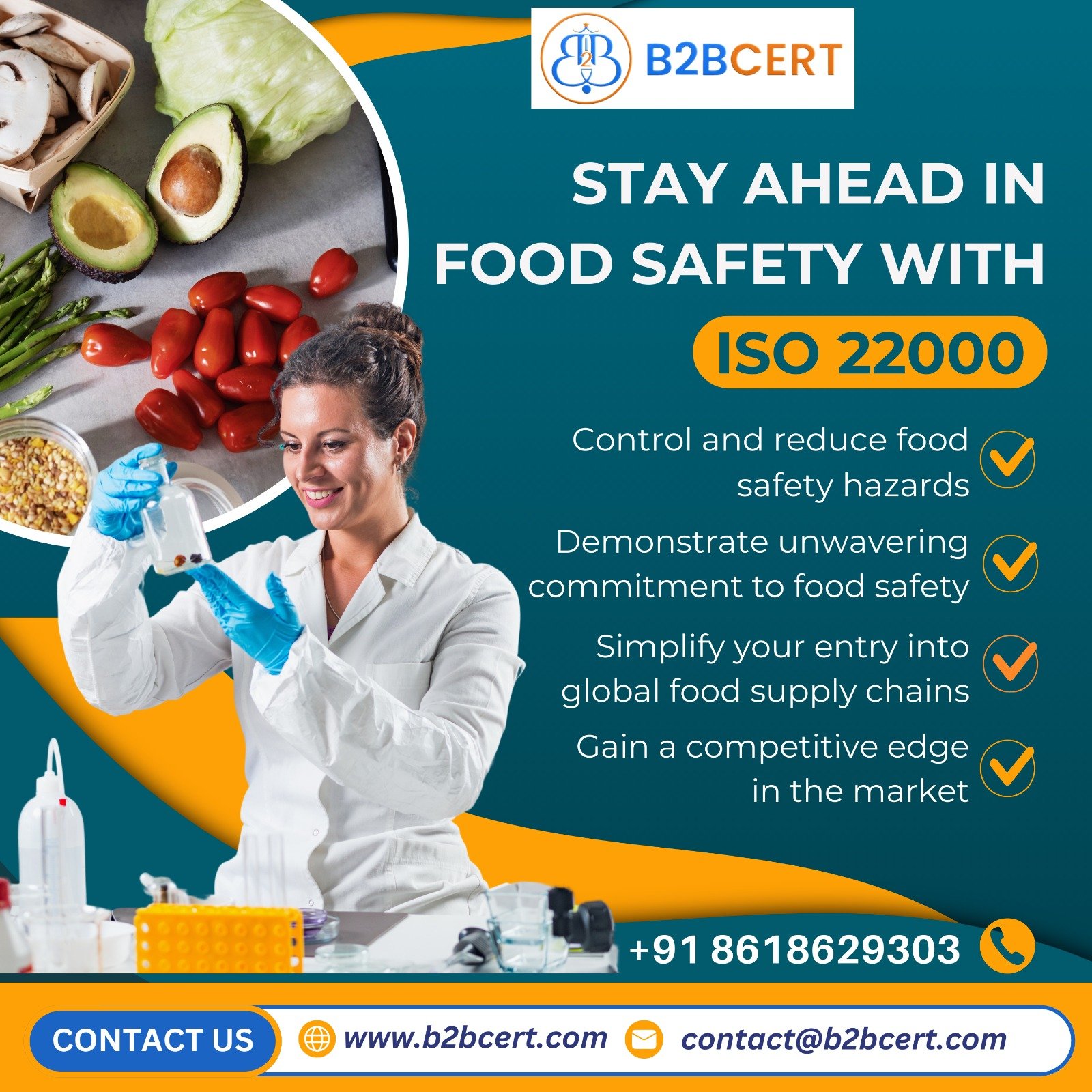In today’s competitive food industry, ensuring food safety and quality is not just a regulatory requirement but also a core business responsibility. Organizations must adopt systematic approaches that help manage risks, improve efficiency, and build consumer trust. One such globally recognized standard is ISO 22000, which provides a framework for establishing, implementing, and maintaining a Food Safety Management System (FSMS). But what makes ISO 22000 unique is its ability to integrate seamlessly with other standards such as ISO 9001 and HACCP (Hazard Analysis and Critical Control Points).
This article explores how ISO 22000 works hand in hand with these standards and why businesses often seek ISO 22000 Certification in Bangalore with the support of professional ISO 22000 Consultants in Bangalore.
Understanding ISO 22000
ISO 22000 is an international standard that specifies requirements for a food safety management system. It ensures organizations can control food safety hazards along the supply chain and deliver safe products. From raw material sourcing to final distribution, ISO 22000 integrates preventive controls, management system principles, and regulatory compliance.
For companies in Bangalore’s growing food sector—ranging from manufacturers and processors to retailers and hospitality businesses—obtaining ISO 22000 Certification in Bangalore demonstrates a commitment to safe and high-quality food practices.
ISO 22000 and ISO 9001: A Unified Approach
ISO 9001 is the global standard for Quality Management Systems (QMS), focusing on customer satisfaction, continual improvement, and process efficiency. While ISO 22000 emphasizes food safety, its structure is aligned with ISO 9001, making it easy for organizations to integrate the two standards.
Key Integration Points:
- Process-Based Approach – Both ISO 22000 and ISO 9001 rely on a process-based methodology, enabling businesses to manage risks and optimize operations simultaneously.
- Continual Improvement – ISO 9001 focuses on enhancing customer satisfaction, while ISO 22000 stresses continual improvement in food safety. Together, they provide a holistic framework for sustainable growth.
- Documented Information – Integration reduces duplication of procedures, policies, and documentation, saving time and resources.
- Leadership and Employee Involvement – Both standards highlight the importance of leadership commitment and staff awareness, creating a culture of accountability and responsibility.
By aligning food safety management with quality management, organizations can enhance efficiency, reduce risks, and improve stakeholder confidence. Professional ISO 22000 Consultants in Bangalore often recommend this integrated approach to achieve both certifications seamlessly.
ISO 22000 and HACCP: Enhancing Food Safety Controls
HACCP (Hazard Analysis and Critical Control Points) is a preventive approach to food safety that identifies, evaluates, and controls hazards in food production processes. HACCP is often considered the foundation of food safety management and is embedded within ISO 22000.
How ISO 22000 Integrates HACCP Principles:
- Hazard Analysis – ISO 22000 incorporates HACCP’s systematic hazard identification and risk assessment methodology.
- Critical Control Points (CCPs) – Both standards define CCPs to prevent or eliminate hazards, ensuring food safety at every stage.
- Monitoring and Verification – ISO 22000 strengthens HACCP by adding management system elements such as performance evaluation and internal audits.
- Corrective Actions – HACCP principles align with ISO 22000 requirements for corrective and preventive measures, ensuring continuous improvement.
In short, ISO 22000 provides a broader management system framework that not only uses HACCP principles but also integrates them into an organization’s overall strategy, governance, and compliance processes.
Benefits of Integrating ISO 22000 with ISO 9001 and HACCP
- Improved Food Safety and Quality – Businesses can assure both safe products and superior quality.
- Operational Efficiency – Integrated systems eliminate redundancies, streamline documentation, and optimize resources.
- Regulatory Compliance – Integration helps meet both international standards and local food safety regulations.
- Global Recognition – Certification enhances credibility, market access, and customer trust.
- Risk Management – A combined approach allows organizations to manage operational, safety, and quality risks in a structured manner.
Many companies opt for ISO 22000 Services in Bangalore to streamline these integrations and gain a competitive edge in both domestic and international markets.
Why Choose Professional ISO 22000 Consultants in Bangalore?
Implementing ISO 22000 and integrating it with ISO 9001 and HACCP can be complex without expert guidance. Certified consultants provide:
- Gap analysis and readiness assessment.
- Training and awareness programs for employees.
- Customized documentation and process alignment.
- Support during audits and certification processes.
- Guidance for continual improvement and compliance maintenance.
Whether you are a food manufacturer, supplier, or service provider, partnering with experienced ISO 22000 Consultants in Bangalore ensures smooth implementation and sustainable results.
Conclusion
ISO 22000 is more than just a food safety standard—it is a comprehensive framework that aligns with ISO 9001’s quality management principles and HACCP’s preventive approach to hazards. By integrating these standards, businesses can achieve higher efficiency, stronger compliance, and enhanced customer trust.
For organizations in the food industry, securing ISO 22000 Certification in Bangalore with the help of reliable ISO 22000 Services in Bangalore is not just a compliance step but a strategic investment in long-term growth and global competitiveness.











Leave a Reply